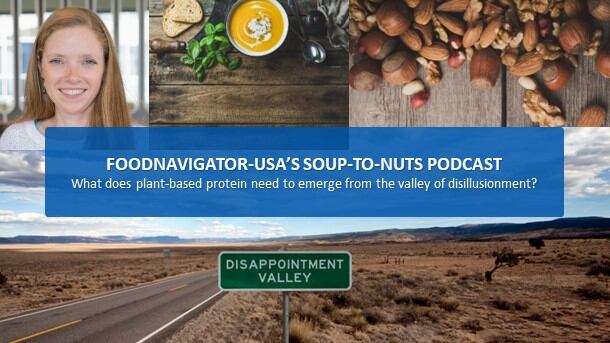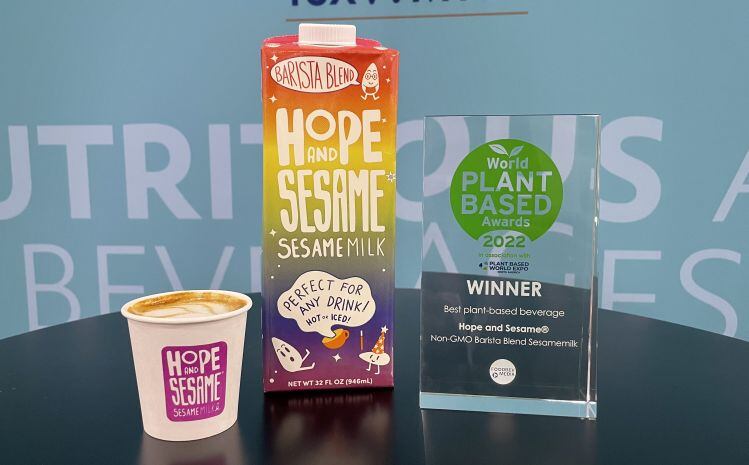In a proposed draft guidance slated for publication in the Federal Register Feb. 23, FDA explained plant-based milk alternatives may continue to use the term ‘milk’ in their name, as in the case of soy milk or almond milk, because “consumers generally understand that [plant-based milk alternatives] do not contain milk and choose to purchase PBMA because they are not milk.”
However, it adds, “many consumers may not be aware of the nutritional differences between milk and PBMA products,” and therefore should include a “voluntary nutrient statement that conveys how the product compares with milk based on the US Department of Agriculture’s Food and Nutrition Service fluid milk substitutes nutrient criteria.”
As an example, FDA said, a plant-based milk label could say, “Contains lower amounts of Vitamin D and calcium than milk.” It also can call out when it has higher levels of calcium, magnesium, vitamin D, protein or other nutrients of interest than dairy milk.
The agency based its decision on more than 13,000 comments that it received in response to its 2018 request for comment from the public on how consumers use PBMAs and understand the term ‘milk’ when included in the names of non-dairy products made from soy, pea, nuts, grains or other plant-based ingredients.
FDA also justified its suggestion plant-based products can use ‘milk’ because its use has “been established by common usage.”
The agency’s recommendation to include a voluntary nutrient statement comparing PBMA to dairy does not apply to plant-based products that use ‘beverage’ or ‘drink’ instead of ‘milk’ in their name, FDA adds.
While the proposed guidance is non-binding and FDA calls the nutrient content claim ‘voluntary,’ many stakeholders likely will comply because the guidance reflects the agency’s thinking on the laws and regulations and noncompliance could leave companies open to lawsuits.
What does ‘milk’ mean to consumers?
FDA’s decision to overlook the use of ‘milk’ on products that do not meet the term’s standard of identity angered dairy industry stakeholders, but was lauded by plant-based players as a common sense approach.
Jim Mulhern, president and CEO of the National Milk Producers Federation, lamented FDA’s “circular logic” for allowing the use of ‘milk’ on non-dairy products because it has fallen into common usage due to a lack of enforcement by FDA to date.
“Past inaction is poor precedent to justify present and future inaction,” he argued.
US Sens. Tammy Baldwin, D-Wisc., and Jim Risch, R-Idaho, agreed that plant-based products “should not be getting away with using” milk as a descriptor given “America’s dairy farmers work hard to produce second-to-none products with the highest nutritional value.”
The duo clapped back against the agency’s proposal, arguing that if FDA would not enforce “its own definitions for dairy terminology and stop imitation products from deceiving consumers, we will be reintroducing our DAIRY PRIDE Act to stand up for America’s dairy farmers and the quality products they make.”
The previously introduced bipartisan Defending Against Imitation and Replacements of Yogurt, milk and cheese to Promote Regular Intake of Dairy Everyday Act required FDA to issue guidance for enforcement of mislabeled plant-based products and would require the agency to report to Congress within two years about its efforts and obligations.
Plant-based stakeholders supported FDA’s decision to allow for the use of milk as a “commonsense” descriptor for PBMAs.
The Good Food Institute “supports commonsense labels that use terms consumers understand and themselves use,” said GFI senior regulatory attorney Madeline Cohen.
She explained: “We applaud FDA’s recognition that consumers understand the difference between plant-based milk and cow’s milk and that shoppers choose to purchase plant-based milk specifically because it is not cow’s milk. The guidance acknowledges that consumers choose these products for a variety of reasons, including allergies, intolerances, and religious and ethical reasons. Furthermore, the guidance accurately concludes that plant-based milks bearing the term ‘milk’ in their names do not purport to be or to contain cow’s milk.”
Would nutrient content claims add transparency even if not enforced?
FDA’s compromise of pairing ‘milk’ with a nutritional claim did little to bring the two sides together.
The agency justified the proposal for a “voluntary” nutrient claim alongside the term milk as important because “the nutritional composition of PBMAs do not contain the same levels of key nutrients as milk.”
Susan Mayne, director of FDA’s Center for Food Safety and Applied Nutrition, added in a statement, “Getting enough of the nutrients in milk and fortified soy beverages is especially important to help children grow and develop and parents and caregivers should know that many plant-based alternatives do not have the same nutrients as milk.”
NMPF’s Mulhern agreed the proposed qualifications would address confusion around PBMAs’ nutritional value and “provide greater transparency that’s sorely needed for consumers to make informed choices.”
But given FDA’s characterization of the nutrient claims as voluntary, Joseph Scimeca, senior vice president of the International Dairy Foods Association, questioned how FDA plans to enforce the draft guidance “to ensure information provided by companies to consumers is truthful and not misleading and enables consumers to compare the nutritional value of plant-based alternatives to their traditional cow’s milk counterparts.”
Plant-based stakeholders argue proposal is ‘unfairly burdensome’ and misguided
The Plant Based Food Association’s CEO Rachel Dreskin countered that many of the suggestions in the proposal are “unfairly burdensome to companies, and frankly, treat plant-based products differently than any other foods in the market.”
Cohen agreed, adding the “guidance is premised on the idea that consumers are somehow confused by plant-based milks’ nutrition, despite the fact that FDA already requires key nutrients to be included in the Nutrition Facts panel.”
She also noted similar nutrient content claims are not suggested for cow’s milk, even though “milks such as unfortified skim milk and 2% reduced-fat chocolate milk have significant nutritional differences from whole cow’s milk.”
The Plant Based Foods Association added, “Nutritional equivalency is an inappropriate basis for distinguishing plant-based milk from animal-based milk, as different products serve a variety of intended uses.”
Furthermore, it added, FDA’s uneven application of nutrient content claims across products and categories “threatens to jeopardize growth of the innovative plant-based foods industry.”
Comments due to FDA in April
Stakeholders wishing to submit comments to FDA about the proposed draft guidance have 60 days from the proposal’s publication in the Federal Register, which is slated for Feb. 23.




